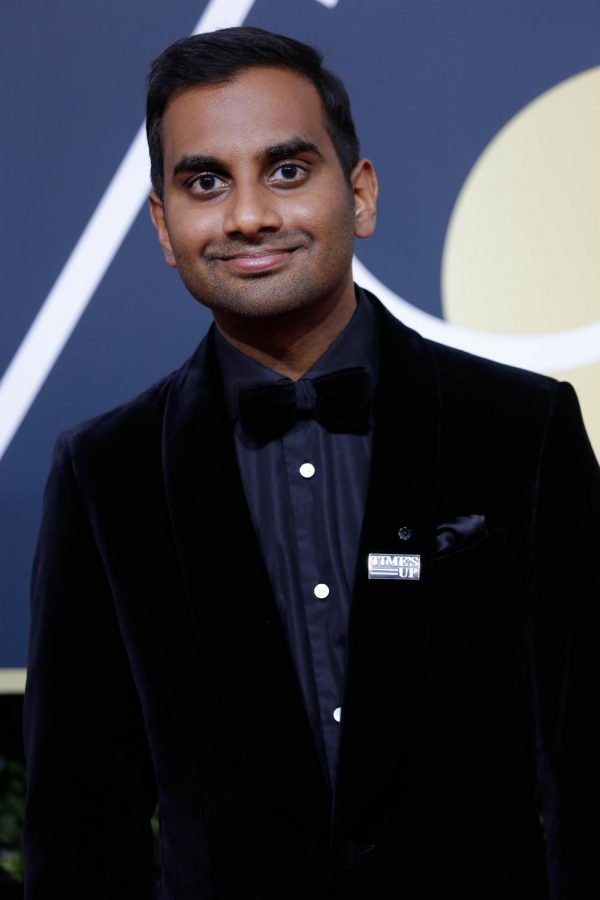Editorial | Aziz Ansari situation highlights myths about consent
Aziz Ansari arrives at the 75th Annual Golden Globes at the Beverly Hilton Hotel in Beverly Hills, Calif., on Sunday, Jan. 7, 2018.
Jan 16, 2018
By now, many of us have probably heard that Aziz Ansari was implicated in a situation involving a woman whom he had a sexual encounter with, which left the woman feeling uncomfortable and disrespected. Since she came forward, social media has been abuzz with those who claim the situation was “too blurry” and “not clear-cut” sexual assault.
The issue with the Aziz Ansari situation is that many people have likely found themselves in similar situations and not coded it as assault. The woman was not underage, like the case of Anthony Rapp and Kevin Spacey. There were not multiple, powerful women over years, like the accusations against Harvey Weinstein.
It was a date between two consenting adults that turned into a non-consensual sexual encounter. The issue that prevails is not everyone is taught the same thing about consent. Part of dating is the chase. Playing hard to get. Being coy.
We’ve written many editorials about sexual assault, but this one is different because it hits so close to home. University students often find themselves in similar scenarios in their dating lives on campus. A good date turned sour? A couple of drinks blurring the line? Afraid of saying no because you don’t necessarily dislike the person and don’t want to hurt their feelings? These are situations in which we are all too familiar, but we don’t always consider the consent aspect of them.
The root of the issue is that Ansari did not realize what he was doing was wrong despite the signals of reluctance or discomfort the woman expressed. He thought it was consensual and was confused to hear in the aftermath that it was not.
College is noted as a time of drunk hookups and one-night stands. When you barely know the person and have, through a series of DMs or some non-verbal dancing, seemingly participated in an agreement to hook up, it can seem like a signed contract or overarching “yes” as soon as you go home with them.
But that’s not the case. First of all, if you’re too drunk to drive, you’re definitely too drunk to consent. Stumbling and slurring are telltale signs you should go home and fall asleep. But no matter what state you’re in, you can always decline.
“No” should stop another person in their tracks. Any indication that the levels of consent aren’t equally enthusiastic should end contact. In an ideal world, it would clearly translate that all interactions end there. There would be no chase. No moving your hand or your face away multiple times. No pressure.
And it should be able to happen at any point, even in the middle of sex.
It doesn’t necessarily have to be clinical and careful, asking permission before every single movement. But all parties need to be observant and respectful.
Pay attention. If your partner doesn’t seem as into whatever you’re doing, stop. Ask what’s wrong. Tell them you noticed a change. Let them leave if they want to.
Most importantly, this applies to every single sexual thing you’ll ever do. It doesn’t matter if it’s a one-off Tinder date or your twenty-fifth wedding anniversary.
But here’s where it gets tricky: this may be the first time you’ve ever been told this. There’s no standardized curriculum for sexual education, and the things we as a society recognize as sexual assault are changing.
Does this mean what Ansari did was fine? No. But he can learn. Everyone can learn, even if it means coming to terms with the fact that you hurt someone when you didn’t mean to.
Yes, it’s only one woman coming forward. Maybe it’s an isolated incident. But for plenty of other people, the events “Grace” described are familiar scenes. Communication and awareness are crucial for both partners in sexual interactions; people deserve to be understood even if they aren’t using words.






